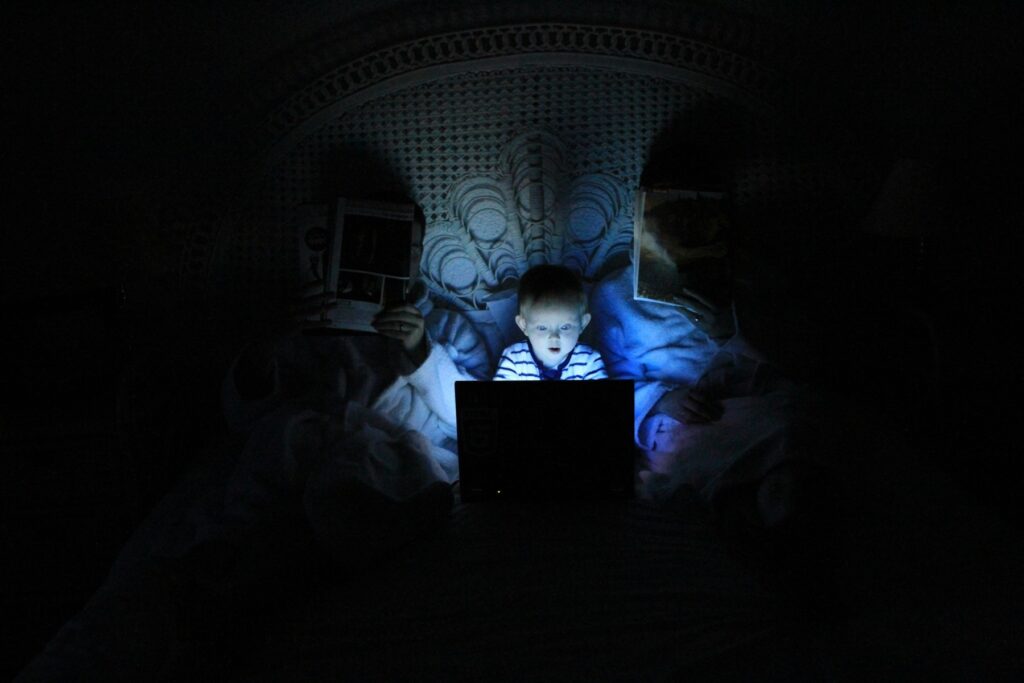This post is also available in Dutch .
As winter settles in, natural daylight becomes scarce, leaving us dependent on artificial lighting. As it gets colder, we also tend to spend less time outside and more time in front of our phones, computers, and TVs. Unfortunately, blue light from devices, LEDs, and fluorescent bulbs can interfere with the body’s natural sleep-wake cycle, causing restless nights and sluggish mornings. Understanding how blue light interacts with our circadian rhythm, particularly in winter, can help us take simple steps to protect our sleep.
Neurobiology of the circadian cycle
The circadian cycle includes all the physical, mental, and behavioral changes that we experience over a course of 24 hours influenced by light and darkness. It regulates patterns like sleep, wakefulness, hunger, blood sugar, and hormones. This cycle is controlled by the suprachiasmatic nucleus (SCN) present in the brain’s hypothalamus which acts as our body’s master clock. It relies on environmental light cues to distinguish day from night by regulating melatonin production, a hormone that promotes sleep. During light exposure, melatonin production recedes as the brain perceives it as daytime. In contrast, in night or in the absence of light, melatonin production increases, signalling the body to relax and prepare for sleep.
Blue light in winter
In winter, reduced sunlight and overcast skies weaken the natural light-dark cycle, making the circadian rhythm more sensitive to artificial cues. Recent studies have found that 17% of people show unusual patterns of melatonin levels in winter compared to only 2% in summer. Specialized photoreceptors in the retina, called intrinsically photosensitive retinal ganglion cells (ipRGCs), are highly sensitive to blue light (460–480 nm) and send signals directly to the SCN. Thus prolonged exposure to blue light, especially at night, can suppress the melatonin production, throwing the circadian cycle off its natural rhythm. Blue light also interferes with the production of other hormones like cortisol and leptin. Increased production of cortisol (a stress hormone) can prevent us from relaxing during the night, making it more difficult to sleep. Regulated production of leptin can make us hungry and increase our food cravings which can lead to weight gain during the winters.
Remedy
We can simply limit our exposure to blue light before sleeping to prevent a disruption in the circadian cycle. But it is easier said than done in a world dominated by screens and artificial lighting, especially during the long, dark evenings of winter. Creating a routine with screen-free activities before bed and using tools like blue light filters or warm lighting can make this habit easier to adopt and more effective for better sleep. Another effective remedy is using sun lamps that replicate natural daylight, providing a much-needed boost to our circadian rhythm during the dark winter months. By simulating sunlight, these lamps help reinforce your body’s internal clock and improve sleep patterns.
Author: Siddharth Chaturvedi
Buddy: Vivek Sharma
Editor: Elena Markantonakis
Translations: Lucas Geelen
